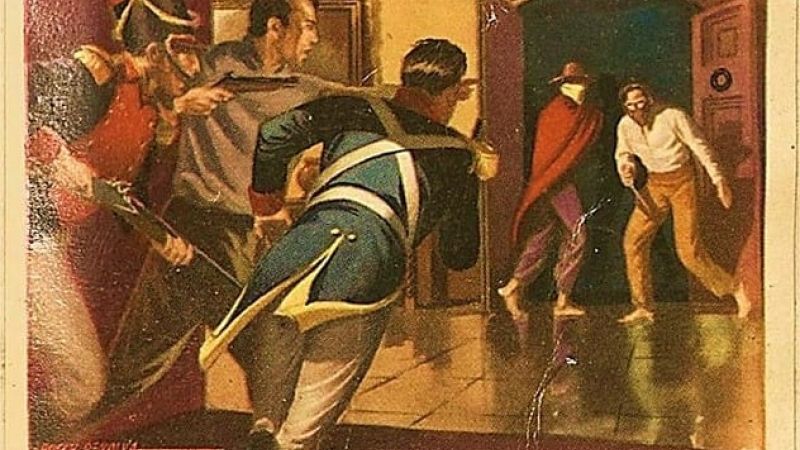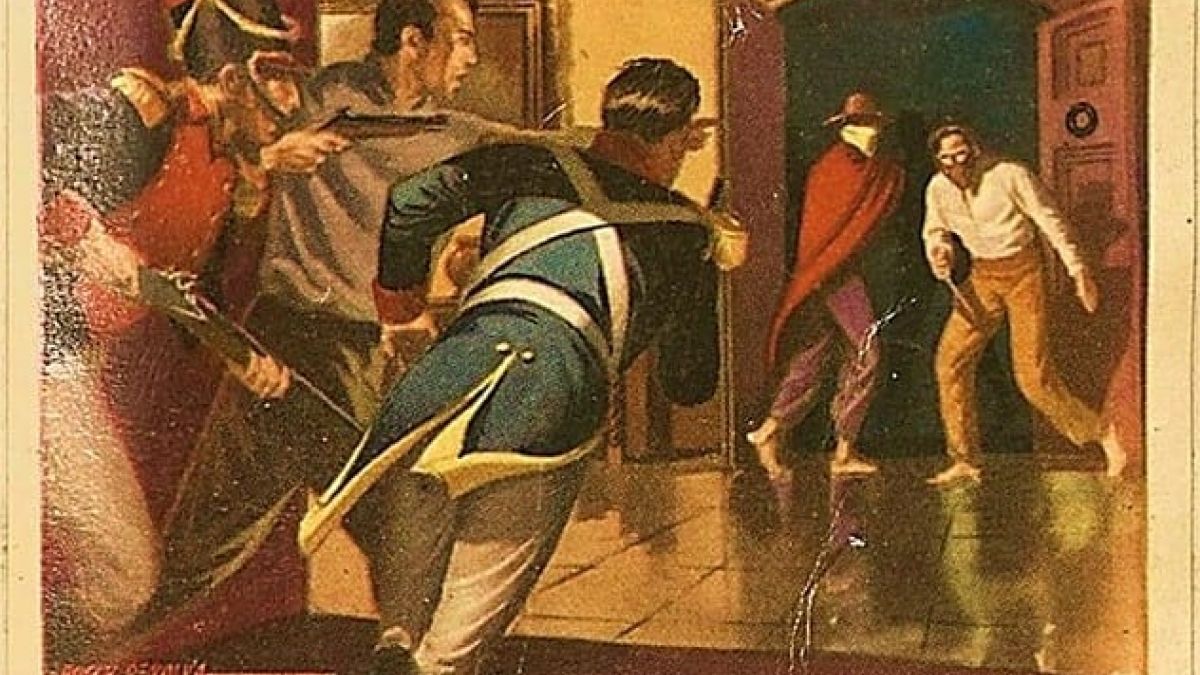Utilitarian Liberalism and the September Attack


Internet

Published at: 31/10/2024 07:37 PM
While Bolívar was waging war in Peru, Santander was hindering him, denying or delaying the resources requested by him. That triumph of Junín and Ayacucho in Peru was a great feat, because of the great difficulties that the Liberator had to overcome due to the little support of the Colombian government led by Santander, and the almost zero of Peruvians, where the rulers who called him, then betrayed him with the exception of the Congress that appointed him Dictator and then disbanded himself and the indigenous guerrilla fighters of the Sierra who joined the Bolivar-led Campaign for the Liberation of Peru.
At the same time, in Colombia, the Santander government generated a lot of discontent among the peoples of the three departments of the Republic, due to the abandonment to which they were subjected due to the poor and indolent administration of their government; in 1826, when Bolívar was returning from Peru to Bogotá, he could feel the laziness. Santander dedicated himself to creating xenophobia against Venezuelans in New Granada and promoted an ideologically opposed to the people, a supposedly philological, clandestine society, where intellectuals and students participated, in which the “September attack” against El Libertador took place in 1828.
Santander controlled the Colombian Congress, where they created laws related to his selfish ideology, marked by the envy he had for Bolívar. One of those laws was to prevent the Liberator from leading the Colombian army in Peru days before the Battle of Ayacucho. He formed a party with the liberal utilitarian ideas of the English philosopher Jeremías Bentham, a liberalism based on the individual over the collective, which justified usury, supported the study of this philosopher in the universities of Colombia, capitalist ideas that glorified relations between people for the benefit they could achieve for their personal interests, they advised the state administration to reduce them for the minimization of expenses, it was capitalism born in the midst of a society whose elites maintained monarchist, absolutist, racist and supremacist ideas. Later, Bolívar, by decree, eliminated Jeremías Bentham's study at the universities, even responding to a request from the parents of the young Colombians of the time and the Clergy, but these studies were restored by Santander after Bolívar's death.
We will stop here to quote the Colombian historian Juvenal Herrera Torres, in his work “Bolivar the Man of America” who in turn quotes Liévano Aguirre in some very illustrative paragraphs:
“The enemies of the Liberator, as pointed out by the respectable historian Liévano Aguirre, were the genuine representatives and spokespersons of commercial and usurious capitalism: 'Speculators enriched by the usufruct of the war of independence closed their account books in the evenings to meet at the Philology to listen to Don Ezequiel Rojas's soporific expositions on Benthanism and the verses of Vargas Tejada against Bolivar'.
The liberticides had declared themselves seduced by the utilitarian theses of Bentham, who proposed the creation of model prisons to resolve the social crisis, and defended usury with irresistible zeal, considering it as the 'manifestation of the person's incomprehensible right to absolute freedom'
They participated in the Philological Society, not exactly philological scholars. But certain individuals, in the style of Luis Vargas Tejada, who opposed the social redemption of indigenous people, said that with that policy, Bolívar was lifting “the feces of society.” Subjects like Francisco Soto: one of those liberals who described the Liberator as a 'monster of the human gender' who marches at the head of the 'shirtless' to carry out 'a revolution against the owners'
And of course, Francisco de Paula Santander, his undisputed leader, participated, who accused Bolívar... saying that the Liberator wanted to provoke 'an internal war in which those who have nothing win, that there are always many, and that we lose those we have, who are few of us. '
Parodying Bentham, Bolivar's enemies belligerently supported the absolute principle of individualist enrichment and affirmed that the postulate of social equality should give way to the sacrosanct right to private property.”
These characters, together with others such as Vicente Azuero, Florentino González, Emigdio Briceño and Pedro Carujo, led the conspiracy against the Liberator on the night of September 1828, in which Bolívar saves his life, thanks to Manuela Sáenz. The magnicides were captured and sentenced to capital punishment, however, they received in exchange for it the benefit of exile, from where they continued to conspire to achieve the division of Colombia the great after they assassinated Sucre and caused the death of Bolívar in 1830, burdened by the moral penalties inflicted by treason.
Since then, the Creole oligarchies seized power in the nascent republics of our America, subordinated them to the Yankee and European empires, and tyrannized the peoples, denying Bolivarian ideals, not without a fight. The peoples who have known freedom defend themselves, an example being the rebels: Cuba, Nicaragua and Venezuela, upholding the legacy of Martí and Fide l, of Sandino, of Bolívar and Chávez. But imperialism continues to harass them, to subject them to the new version of utilitarian liberalism, fascist neoliberalism, embodied in the extreme right opposition that, in Venezuela, They Will Not Return!
MARIA MAGDALENA ZAMBRANO
NETWORK OF HISTORY, MEMORY AND HERITAGE OF THE FORMER STATE OF BOLIVAR